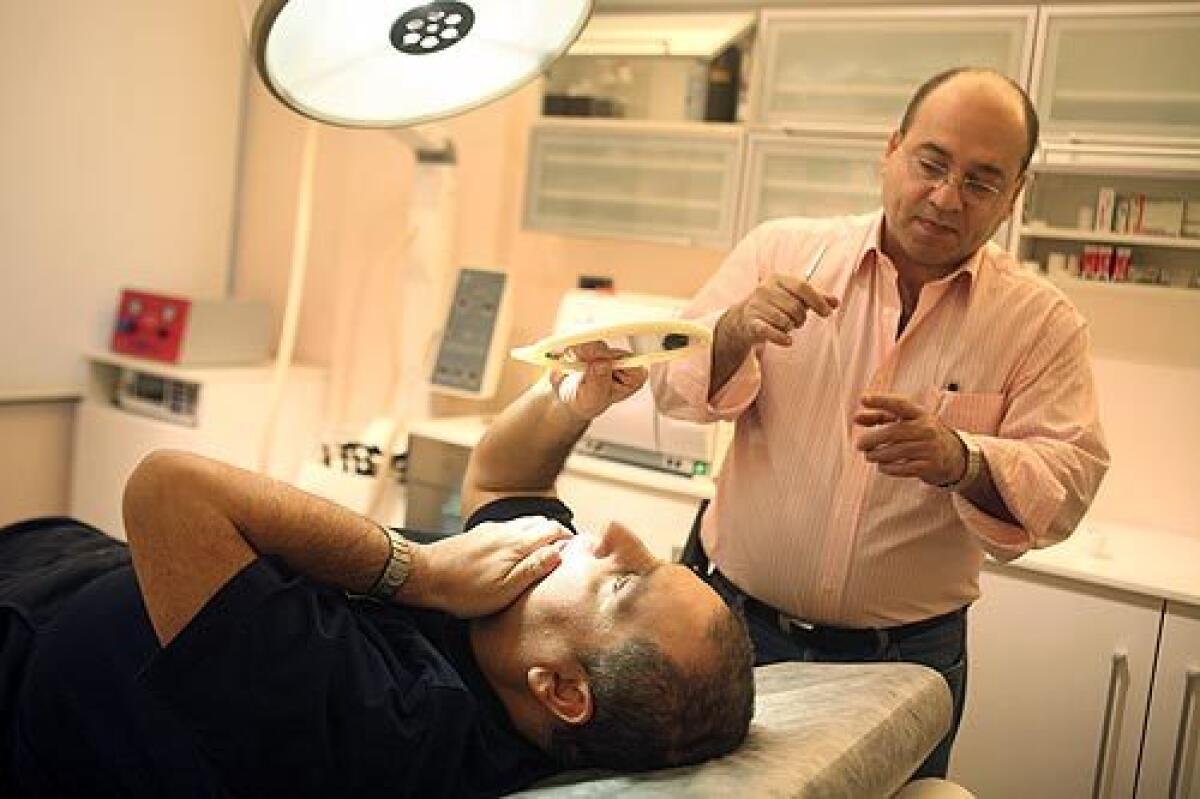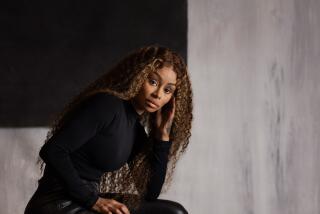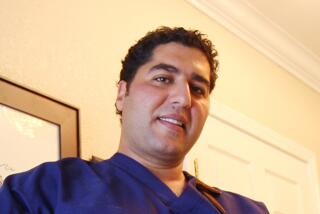Loans that shape Lebanon’s bottom line

Beirut
Forget getting behind on your payments. Maysa, a 31-year-old accountant, is making payments on her behind.
For years the Beirut resident felt uncomfortable with her derriere. She tried dieting, exercise and weight-loss pills, to no avail. Then she discovered that her bank was offering thousands of dollars in loans for nose jobs, breast implants, face-lifts and liposuction.
Maysa, who asked that her last name not be published, signed on the dotted line and went to the clinic with a check for $2,800 -- a third of her annual salary. Hours of liposuction later, she walked out with a new rear end.
“I wanted to do the operation, but it was expensive. I couldn’t pay for it in one lump sum,” said Maysa, who squirmed and fidgeted with her brown hair at the beginning of a recent conversation about her bottom, but relaxed and proudly showed off her new slim jeans by the end.
“I could have saved up, but I decided to get a loan and get the results now.”
Even during a 15-year civil war that ended in 1990, Lebanon was known as the Arab world’s plastic-surgery capital. Now, some estimate that the country’s 200 or so plastic surgeons perform up to 1.5 million procedures a year, from simple Botox injections to tummy tucks. Plastic surgeons say 90% of their work is cosmetic and 10% is reconstructive for victims of war and disease -- a complete reversal from 20 years ago.
Last spring, after Lebanon’s upstart First National Bank launched a bold ad campaign offering loans for cosmetic procedures, the profitable plastic surgery industry grew even more successful. Lower-income secretaries and flight attendants now could join the well-heeled homemakers and debutantes who’ve long gone under the knife.
First National reports 30% monthly increases in applications for plastic surgery loans, and two other banks have followed with similar offers.
“Now beauty is no more a luxury,” said George Nasr, director of marketing at First National. “Anyone can have it.”
Though the Arab world has a reputation in the West as a land of piety and austerity, a strong strain of frivolity and vanity also runs through the culture, especially in Lebanon. Their nation perpetually teeters on the brink of chaos and has yet to fully recover from decades of war, but the Lebanese, even in times of strife, have always pursued the good life with zest.
This is a country that placed civic pride over practicality, sinking $40 billion into debt to rebuild to gorgeous perfection a downtown destroyed in the civil war, even as it continues to suffer daily electricity brownouts and monthly tap-water shortages.
“There’s a kind of irresponsibility because we look at ourselves and not our country,” said Ziad Sleiman, a plastic surgeon.
“It’s a vicious circle,” Sleiman said. “Good car, well dressed, every day you have to shave. It’s a lifestyle, and the Arab countries copy from here. They look to Lebanon to see . . . the fashion, the new trends.”
Lebanese barely shrugged as a parade of emissaries, including French Foreign Minister Bernard Kouchner and United Nations Secretary-General Ban Ki-moon, recently visited the country in an attempt to resolve a political deadlock that has left Lebanon without a president since November.
But they went gaga over Paul van Dyk, the Dutch DJ who was the first major international pop star to play Beirut since Israeli fighter jets and warships bombed the country in the 2006 war against Hezbollah.
Many young people like to spend their extra cash on pricey cellphones and designer clothes, just like their counterparts in the U.S.
“A lot of people tell you, ‘Why should I wait five years and collect the money, put it away bit by bit every month, when I can do it now, benefit from the surgery now for the next five years?’ ” said Amin Nasr, a Beirut plastic surgeon who marvels at the number of patients he attracts in what remains essentially a war-torn developing country.
“Especially in a place where some people don’t have enough money to rent a proper house and send their kids to a proper school, where the electricity is still cut six hours out of 24, and people don’t have water in their homes, you find them taking loans to get aesthetic surgery,” the surgeon said.
First National planned to spring its plastic surgery ad campaign in 2006 but delayed it because of the war between Hezbollah and Israel.
“We thought it might be construed as insensitive,” said Nasr, the First National marketing director, who is no relation to the physician.
The 900-billboard promotion began last April. The ad featured a close-up on the face of a blond, blue-eyed woman with porcelain skin, full lips and a dainty nose. “Plastic Surgery Loan,” it said simply, along with a phone number.
The campaign became the talk of the town, even though plastic surgery is typically a taboo subject. Many people in Lebanon get plastic surgery. Few talk about it.
Callers flooded First National Bank’s phone lines. Credit Libanais launched a rival program, while the Bank of Beirut and the Arab Community, or BBAC, began offering a “beauty” loan “to add flair to your life,” according to the promotional brochure.
Each bank offers loans of $3,000 to $5,000 to be repaid in two to three years at an annual interest rate of up to 9%, about the same range as a car loan. Borrowers must have a job and a steady salary.
What if a debtor doesn’t pay up?
“Do you want to come upstairs, see all the noses and breasts we’ve repossessed?” Nasr joked.
But seriously, “there’s a characteristic with plastic surgery,” said the banker. “You’re dealing mostly with ladies, and ladies are good payers.”
Nasr and others said it is a mistake to view the plastic surgery loans as something trivial. They said that for many, borrowing thousands for a new nose or bigger breasts might be as good an investment as a college degree or a reliable car.
Nasr tells the story of a plastic surgeon who was asked by a prospective patient whether she could pay in installments. The doctor said no and advised her to save up for it.
To his surprise, she came back a few days later, cash in hand. “The doctor asked, ‘How did you get the money?’ ”
She told him she had sold her car. “He said, ‘Are you crazy?’ ”
She told him a new nose was more important to her than a car, because every day she looked in the mirror and hated herself, believing her nose was the reason she was single and had no social life.
“This is a very critical and personal subject that we cannot judge,” Nasr said.
Maysa, who earns $8,400 a year, said the operation was worth every penny of the $65 she has to pay each month. She got tired of watching television shows overpopulated with slim, sexy women, making her feel inadequate.
“There was certain fat on my body, and the first opportunity I had I got rid of it,” she said. “I feel confident.
“My friends say it looks great,” she said of her bottom. “If I can look good, why not?”
More to Read
Start your day right
Sign up for Essential California for news, features and recommendations from the L.A. Times and beyond in your inbox six days a week.
You may occasionally receive promotional content from the Los Angeles Times.






